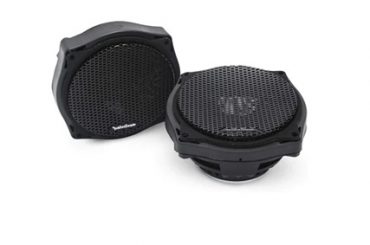Eligibility Requirements

To obtain a motorcycle license in Massachusetts, applicants must meet certain eligibility requirements. The following table summarizes the requirements:
| Requirement | Details |
|---|---|
| Age | Applicants must be at least 18 years old. |
| Permit | Applicants must have a valid Class M permit. |
| Training | Applicants must complete a Massachusetts Rider Education Program (MREP) course or its equivalent. |
| Road Test | Applicants must pass a motorcycle road test. |
| Vision Test | Applicants must pass a vision screening test. |
In addition to the requirements listed above, applicants must also provide the necessary identification documents, such as a birth certificate, passport, or United States Certificate of Citizenship or Naturalization. It’s important to note that poor eyesight can affect an applicant’s ability to ride a motorcycle, so passing the vision screening test is crucial.
For minors under the age of 18, there are additional requirements that must be met. They must have a valid Class M permit, complete a Massachusetts Rider Education Program (MREP) course or its equivalent, and meet the Junior Operator License (JOL) requirements.
Overall, meeting the eligibility requirements is essential for obtaining a motorcycle license in Massachusetts. By completing the necessary training and passing the required tests, applicants can demonstrate their ability to safely operate a motorcycle on the roads.
Application Process

To obtain a motorcycle license in Massachusetts, the applicant must follow a specific application process. This section will outline the required documentation, written test, and road test.
Documentation Needed
Before taking the written test, the applicant must provide the following documentation:
- A valid Massachusetts driver’s license or learner’s permit
- Proof of residency in Massachusetts
- Proof of completion of a Massachusetts Rider Education Program (MREP) or equivalent course
Written Test
After providing the required documentation, the applicant must pass a written test. The test consists of 25 multiple-choice questions, and the applicant must answer at least 18 questions correctly to pass. To prepare for the written test, the applicant should read the Motorcycle Operator’s Manual.
Road Test
Once the applicant has passed the written test, they must pass a road test. The road test evaluates the applicant’s ability to safely operate a motorcycle. The test includes a pre-trip inspection, basic control skills, and on-road riding. The applicant must provide their own motorcycle for the road test.
In conclusion, obtaining a motorcycle license in Massachusetts requires the applicant to provide specific documentation, pass a written test, and pass a road test. The process may seem daunting, but with proper preparation and practice, the applicant can successfully obtain a motorcycle license.
License Types
In Massachusetts, there are several types of licenses that allow individuals to operate different types of vehicles. The most common license is the Class D license, which permits the holder to operate a passenger vehicle, such as a car or truck, with a weight of 26,000 pounds or less.
For those who wish to operate a motorcycle, a Class M license is required. This license allows the holder to operate a motorcycle or any other motor vehicle designed to travel with no more than three wheels in contact with the ground.
It is important to note that a Class M license is not a separate license, but rather an endorsement that is added to an existing driver’s license. In order to obtain a Class M endorsement, the individual must first hold a valid Class D license.
There are also several other types of licenses available in Massachusetts, such as commercial driver’s licenses (CDLs) and RMV-issued identification cards. These licenses have different requirements and restrictions, and individuals should consult with the Massachusetts Registry of Motor Vehicles (RMV) for more information.
Overall, it is important for individuals to understand the different types of licenses available in Massachusetts and the requirements for obtaining them. By obtaining the proper license, individuals can ensure that they are legally allowed to operate the vehicles they wish to drive.
Fees and Costs
Obtaining a motorcycle license in Massachusetts incurs fees and costs. The fees are set by the Registry of Motor Vehicles (RMV) and are subject to change through the state’s regulation process.
As of January 2024, the fee for a motorcycle permit is $30, and the fee for a motorcycle license is $50. The motorcycle license fee is paid every five years. The RMV accepts cash, check, money order, and credit/debit card payments.
In addition to the RMV fees, there may be additional costs associated with obtaining a motorcycle license. For example, applicants may need to take a Massachusetts Rider Education Program (MREP) course, which can cost up to $350. The MREP course is designed to teach new riders the skills and knowledge necessary to safely operate a motorcycle.
Applicants may also need to purchase or rent a motorcycle for the road test. The cost of purchasing a motorcycle can vary greatly depending on the make and model, while the cost of renting a motorcycle for the road test can range from $50 to $150.
Overall, obtaining a motorcycle license in Massachusetts can be a significant investment of time and money. However, for those who are passionate about riding, the benefits of being able to legally operate a motorcycle on the road can far outweigh the costs.
Renewal and Maintenance
Once a person has obtained their Class M motorcycle license in Massachusetts, it is important to keep it up to date. The license must be renewed every five years, and the RMV will send out a renewal notice approximately six weeks before the expiration date. It is recommended that riders begin the renewal process at least two weeks before the expiration date to ensure they receive their new license in time.
Renewal can be done in person at an RMV Service Center or AAA office, or online through the RVM website. The online renewal process requires the rider to have a valid credit/debit card and a current email address on file with the RMV. If a rider has any outstanding fines or fees, they must be paid before the license can be renewed.
In addition to renewing their license, riders must also ensure that their motorcycle is properly registered and inspected. Massachusetts law requires all motorcycles to be inspected annually, and the inspection sticker must be displayed on the motorcycle’s license plate. The inspection includes checks for safety features such as brakes, lights, and horn. Riders can have their motorcycle inspected at any licensed inspection station in the state.
It is also important for riders to maintain their motorcycle insurance. Massachusetts law requires all registered motorcycles to have liability insurance coverage. Riders should regularly review their insurance policy to ensure they have adequate coverage and to make any necessary updates. In the event of an accident, having proper insurance coverage can protect the rider from financial liability.

